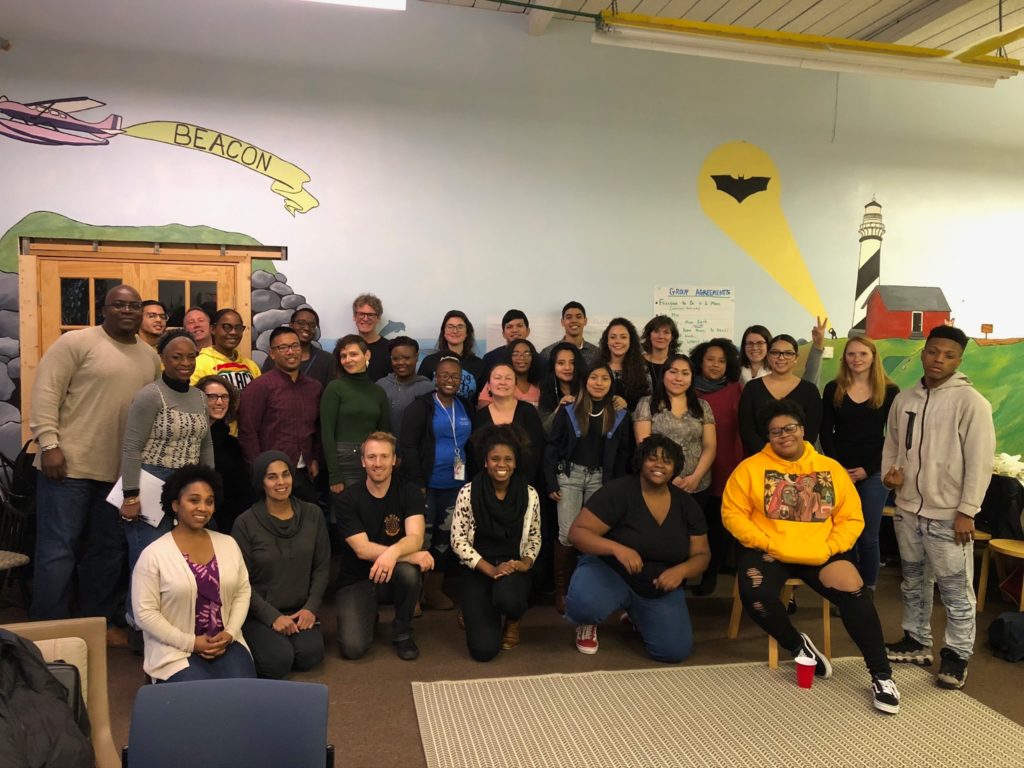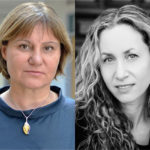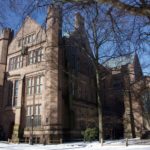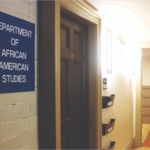
Courtesy of Daniel HoSang
While remote learning has, for some, led to Zoom-induced migraines and overloaded schedules, Yalies in associate professor of American Studies and Ethnicity, Race and Migration Daniel HoSang’s seminar have been using the virtual format to their advantage, collaborating with Connecticut public school teachers to develop anti-racist curriculum.
The seminar, “Anti-Racist Curriculum and Pedagogy,” is cross-listed in African American Studies, Ethnicity, Race and Migration and Education Studies and pairs groups of Yalies with teachers across the state through the Anti-Racist Teaching & Learning Collective — a community of educators working to advance anti-racist curriculum in Connecticut — to help them develop anti-racist resources for their classrooms. The collaboration was also accompanied by a more traditional academic seminar experience, in which students discussed assigned readings and other works.

Six participating students and teachers interviewed by the News said that it was the partnership that was the most transformative part of the class, and a model that they hope to see other professors use moving forward.
“The credit goes entirely to the teachers, for their willingness to collaborate and try out new materials, and of course the students, who worked tirelessly and with great care to find and curate resources to meet the needs of the teachers and their students,” HoSang wrote to the News in an email. “For me, it’s a great example of the public facing work that students can do [to] turn the limitations of remote learning into an opportunity, one that allows them to focus their energies on the development and creativity of others.”
The course was offered for the first time this spring in response to Connecticut public school teachers who, in interviews with Yale students over the summer, commented on the difficulty in finding anti-racist lesson plans, especially while using the remote format.
Enrolled students were partnered with the teachers and worked on a variety of projects, including creating an archive of photos from different social movements, revising a United States history course to incorporate Native American voices and working on a high school speculative fiction class.
Some also worked on designing an anti-racist science curriculum with Erica Watson, a teacher of ninth grade integrated science in southeast Connecticut.
“[The students] helped me to design anti-racist science curriculum that integrates anti-racist platforms for learning science, i.e., students (and I!) get to learn about how indigenous people detect and measure earthquakes, how different people around the world are impacted by earthquakes, etc., all while students explore the science behind plate tectonics,” Watson wrote to the News in an email, adding that the collaboration has been both “eye-opening” and “heart-touching.”
Dora Guo ’23, one of the students who worked with Watson and an illustrations editor for the News, agreed, noting that the ability to learn from community members and do tangible service, rather than solely reading and writing an essay like in a more traditional Yale course, has been “super valuable.”
Having Yale students work with public school teachers, Guo said, was a “humbling process” that focused on listening to and learning from people who have much more at stake in their work.
Helen Tamrat ’23, who worked with teachers at New Haven Academy on their history curricula, echoed Guo’s sentiment. Tamrat said that she especially enjoyed how the class emphasized being in community with both other Yalies and New Haven teachers and administrators.
“I think oftentimes as Yale students, we tend to have a mindset that goes into communities and overreaches and takes control and it’s just overbearing, without truly acknowledging our positionality as students who take up an insane amount of space in New Haven … and not rightfully so,” Tamrat said. “And I think that being in this class has really shown me again, the importance of that, and the importance of again like taking a step back and truly listening and working alongside teachers and administrators and listening to their needs.”
Alexandra Contreras-Montesano ’23 and Jenny Tegegne ’23 worked with Julia Miller, a civics and constitutional law teacher at the Metropolitan Business Academy in New Haven, to turn the school’s traditional research paper capstone into a photojournalism project about various social movements, including the Young Lords Movement and Women’s Liberation Movement.
For HoSang’s course, Contreras-Montesano and Tegegne are also creating their own curriculum on photography through the lens of critical race theory, which Miller invited the two to ultimately teach to her class. Critical race theory refers to a framework that examines how race and racism play out in society, with a focus on how victims of systemic racism are affected by perceptions of race.
“I really appreciate that [HoSang] does not confine his teaching to the walls of the university, but engages with public school teachers and the community,” Miller wrote to the News in an email. “I think it’s very cool that the assignment he gave his undergrads had them partnering and doing work to support practicing educators in real time.”
Tegegne agreed, adding that she “had never taken a class like this” and hopes to see more classes in this format, where institutional resources can be diverted to “serve and help.”
For Contreras-Montesano, who called the class “necessary” and “exciting,” the format of the class is more than just an added bonus, but foundational to truly engaging with anti-racist teaching.
“It’s one thing to learn about anti-racist teaching through theory, which I think is very valuable,” she said. “But it would be a little bit hypocritical to not be doing anything, to just stop at learning about it.”
The course will be offered again in spring 2022.
Madison Hahamy | madison.hahamy@yale.edu











